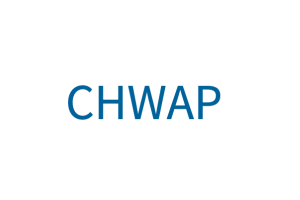 Led by Wael Al-Delaimy, MD, PhD, the Community Health Workers for Advancing Public Health within Immigrant/Refugee and Native American Communities Programs (CHWAP) an academic-community collaborative led by the Herbert Wertheim School of Public Health and Human Longevity Science and with involvement of the UC San Diego Extended Studies, as well as the UC San Diego Altman Clinical and Translational Research Institute Center for Community Health.
Led by Wael Al-Delaimy, MD, PhD, the Community Health Workers for Advancing Public Health within Immigrant/Refugee and Native American Communities Programs (CHWAP) an academic-community collaborative led by the Herbert Wertheim School of Public Health and Human Longevity Science and with involvement of the UC San Diego Extended Studies, as well as the UC San Diego Altman Clinical and Translational Research Institute Center for Community Health.
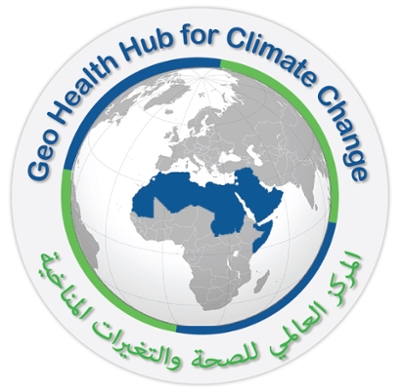 Led by Wael Al-Delaimy, MD, PhD, the GeoHealth Hub is an international consortium focused on the health impacts of climate change. Funded by the National Institutes for Health, this program is one of seven Global Environmental and Occupational Health (GEOHealth) hubs dedicated to high priority health research, data management, curriculum and material development, training activities and policy support. The project aims to better understand and address human health impacts of climate change.
Led by Wael Al-Delaimy, MD, PhD, the GeoHealth Hub is an international consortium focused on the health impacts of climate change. Funded by the National Institutes for Health, this program is one of seven Global Environmental and Occupational Health (GEOHealth) hubs dedicated to high priority health research, data management, curriculum and material development, training activities and policy support. The project aims to better understand and address human health impacts of climate change.
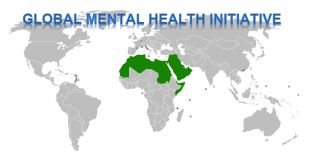 Led by Wael Al-Delaimy, MD, PhD, the mission of the Global Mental Health Initiative (GMHI) at the UC San Diego Herbert Wertheim School of Public Health and Human Longevity Science is to advance the recognition, prevention and care of global mental illnesses with a special focus in the Arab countries that are disproportionately suffering from wars, trauma and other risk factors for these illnesses.
Led by Wael Al-Delaimy, MD, PhD, the mission of the Global Mental Health Initiative (GMHI) at the UC San Diego Herbert Wertheim School of Public Health and Human Longevity Science is to advance the recognition, prevention and care of global mental illnesses with a special focus in the Arab countries that are disproportionately suffering from wars, trauma and other risk factors for these illnesses.
 Led by Wael Al-Delaimy, MD, PhD, The Global Center on Climate Change and Water Energy Food Health Systems (GC3WEFH) aims to address access to safe water for drinking and cooking in Jordan and develop evidence-based approaches that can be scaled up globally. The proposed center will explore new approaches in vulnerable communities in the context of the inter-relation of the water-energy-food-health nexus and climate change.
Led by Wael Al-Delaimy, MD, PhD, The Global Center on Climate Change and Water Energy Food Health Systems (GC3WEFH) aims to address access to safe water for drinking and cooking in Jordan and develop evidence-based approaches that can be scaled up globally. The proposed center will explore new approaches in vulnerable communities in the context of the inter-relation of the water-energy-food-health nexus and climate change.
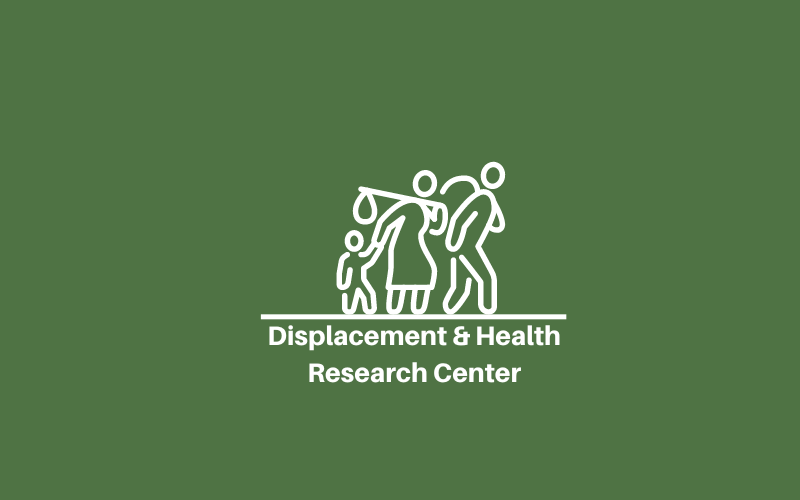 Led by Tala Al-Rousan, MD, MPH, the Displacement and Health Research Center focuses on studying displacement as a social determinant of health. The lab's research centers on equity to guide clinical and public health intervention development and guides policies related to displaced populations. Trainees will be future physicians, public health professionals, academics, and social justice advocates devoted to bettering the lives of displaced populations worldwide.
Led by Tala Al-Rousan, MD, MPH, the Displacement and Health Research Center focuses on studying displacement as a social determinant of health. The lab's research centers on equity to guide clinical and public health intervention development and guides policies related to displaced populations. Trainees will be future physicians, public health professionals, academics, and social justice advocates devoted to bettering the lives of displaced populations worldwide.
 The Anderson Lab is led by Cheryl Anderson, PhD, MPH, MS. Dr. Anderson's research focuses on nutrition and chronic disease prevention in underserved populations using observational epidemiologic study designs, randomized clinical trials, and implementation science.
The Anderson Lab is led by Cheryl Anderson, PhD, MPH, MS. Dr. Anderson's research focuses on nutrition and chronic disease prevention in underserved populations using observational epidemiologic study designs, randomized clinical trials, and implementation science.
Led by Holly Baker Shakya, PhD, and Rebecka Lundgren, PhD, MPH, Agency for All is an international, multi-institutional effort to better understand and promote agency for individuals, communities and local organizations in low- and middle-income countries.
Dr. Baker is also co-PI on Tipping Point, a large 4.5 year grant from the Bill and Melinda Gates Foundation to study the impact of a social network based intervention to promote family planning use among married adolescents in rural Niger.
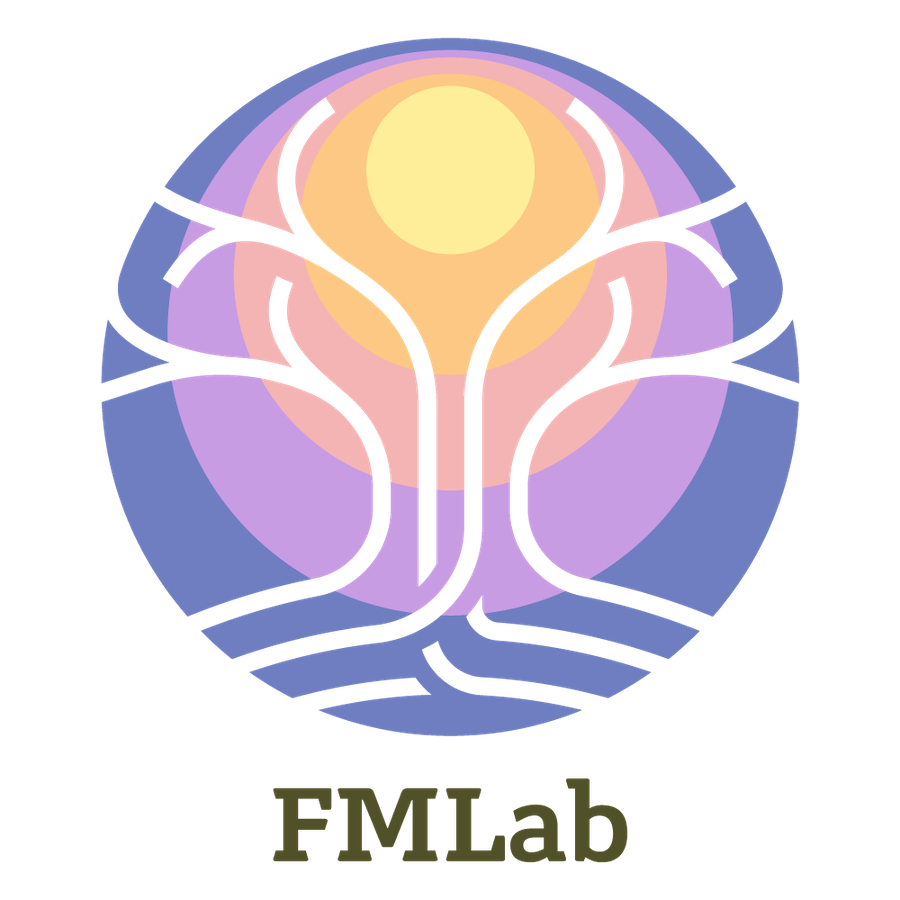 Led by Rebecca Fielding-Miller, PhD, MSPH, the lab conducts community-centered research that prioritizes transparency, empathy and health equity. Their goal is to amplify marginalized voices using rigorous scientific methods. The lab creates evidence that reflects the priorities and lived experiences of marginalized communities and develops interventions that address structural drivers of COVID-19, HIV and gender-based violence.
Led by Rebecca Fielding-Miller, PhD, MSPH, the lab conducts community-centered research that prioritizes transparency, empathy and health equity. Their goal is to amplify marginalized voices using rigorous scientific methods. The lab creates evidence that reflects the priorities and lived experiences of marginalized communities and develops interventions that address structural drivers of COVID-19, HIV and gender-based violence.
 Led by Todd Gilmer, PhD, the Chronic Illness and Disability Payment System (CDPS) is a diagnostic-based risk adjustment model that is widely used to adjust capitated payments for health plans that enroll Medicaid beneficiaries.
Led by Todd Gilmer, PhD, the Chronic Illness and Disability Payment System (CDPS) is a diagnostic-based risk adjustment model that is widely used to adjust capitated payments for health plans that enroll Medicaid beneficiaries.
CDPS uses International Classification of Disease (ICD) codes to assign CDPS Categories that indicate illness burden related to major body systems (e.g. Cardiovascular) or types of chronic disease (e.g. Diabetes). Within each major category is a hierarchy reflecting both the clinical severity of the condition and its expected effect on future costs. Each of the hierarchical CDPS Categories is assigned a CDPS weight. CDPS weights are additive across major categories.
The Transportation Research and Education for Driving Safety (TREDS) mission is to serve as a leader in promoting safety for all transportation users by developing and implementing national education programs and conducting research to inform and enhance public policy.
Research projects encompass three critical modes of transportation including passenger vehicles, commercial motor vehicles (trucks and buses), and railroad. Areas of interest include high risk driving behaviors (speeding, recklessness, non-seatbelt use), fatigue, distraction, impairment (drugs and alcohol), aging driver challenges, and trespassing (railroad).
TREDS operates under the leadership of Linda Hill, MD, MPH, Distinguished Professor, and Ryan Moran, MD, MPH, Associate Professor.
 Led by Eric Leas, PhD, MPH, The E-commerce Lab studies how regulated and emerging consumer products are marketed, sold, discussed, and used in digital environments. The team generates timely, policy-relevant evidence by auditing online and app-based retail markets, conducting survey research, and analyzing social media and online communities to understand who is using new and rapidly evolving products, why they are using them, and how perceived benefits and potential adverse events are reported in real-world settings. Using digital surveillance, controlled purchase attempts and computational and qualitative methods, they examine products such as tobacco and nicotine, cannabis and hemp-derived products, alcohol, pharmaceuticals, harm-reduction supplies, microdosing practices, and other emerging consumer goods to support evidence-based public health, policy and enforcement responses.
Led by Eric Leas, PhD, MPH, The E-commerce Lab studies how regulated and emerging consumer products are marketed, sold, discussed, and used in digital environments. The team generates timely, policy-relevant evidence by auditing online and app-based retail markets, conducting survey research, and analyzing social media and online communities to understand who is using new and rapidly evolving products, why they are using them, and how perceived benefits and potential adverse events are reported in real-world settings. Using digital surveillance, controlled purchase attempts and computational and qualitative methods, they examine products such as tobacco and nicotine, cannabis and hemp-derived products, alcohol, pharmaceuticals, harm-reduction supplies, microdosing practices, and other emerging consumer goods to support evidence-based public health, policy and enforcement responses.
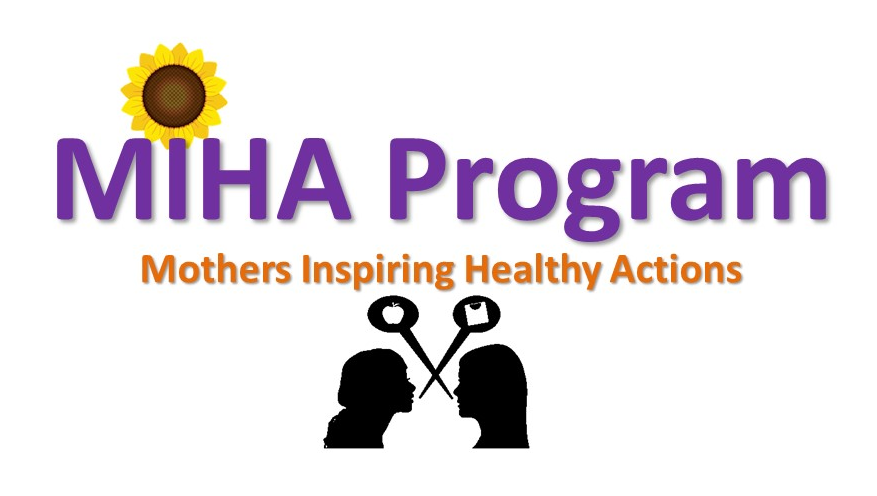 The Mothers Inspiring Health Actions (MIHA) Program, led by Becky Marquez, PhD, MPH, is a randomized control trial testing the efficacy of a behavioral weight management intervention with brief and structured counseling on family functioning. The intervention is linguistically and culturally adapted to support familism, biculturalism, and communication competencies in Mexican American families. Mothers and adult daughters will attend 24 weekly sessions consisting of nutrition and physical activity education, behavior modification techniques, and relationship skills training.
The Mothers Inspiring Health Actions (MIHA) Program, led by Becky Marquez, PhD, MPH, is a randomized control trial testing the efficacy of a behavioral weight management intervention with brief and structured counseling on family functioning. The intervention is linguistically and culturally adapted to support familism, biculturalism, and communication competencies in Mexican American families. Mothers and adult daughters will attend 24 weekly sessions consisting of nutrition and physical activity education, behavior modification techniques, and relationship skills training.
The Center of Excellence for Research and Training in Integrative Health, led by Paul J. Mills, PhD, supports research excellence and collaboration in integrative health within UC San Diego and across the greater San Diego region. The center advances research excellence to transform how medicine is practiced, supporting education and mentorship in integrative health research for students as well as healthcare professionals, helping to guide the creation of new models of clinical care, combining the best of traditional medicine and evidence-based integrative therapies.

Led by
Camille Nebeker, EdD and co-investigators, Nadir Weibel, PhD, Alan Card, PhD, MPH, and Anthony Magit, MD, MPH, the
Research Center for Optimal Digital Ethics (ReCODE) supports researchers and institutions involved in the digital health research process. The goal of ReCODE is to increase awareness of ethical principles and practices from the earliest stages of technology design to the deployment of digital health research.
Victoria D. Ojeda, PhD, MPH, is a professor at the Herbert Wertheim School of Public Health and Human Longevity Science and the UC San Diego School of Medicine. Her research focuses on health service utilization patterns, the health of justice-involved persons, people living with mental illness or those at risk of or living with HIV.
Dr. Ojeda is the director of the UC San Diego Clean Slate Free Tattoo Removal Program, which has provided free laser tattoo removal services to formerly incarcerated adults since 2016. She directs several programs that seek to improve the health and well-being of adults whose lives have been impacted by the criminal legal system as they reintegrate into the community. Dr. Ojeda’s reentry programs have collectively provided services to more than 400 adults reentering the community after incarceration using an individualized service delivery model that tailors support to each client’s specific needs in a one-on-one setting. These program actively collaborate with many community-based organizations in San Diego County as well as local governmental organizations to uplift community members’ well-being.
If you are interested in giving to the RELINK program, please visit the UC San Diego giving page.
James F. Sallis, PhD, is Distinguished Professor at the Herbert Wertheim School of Public Health and Human Longevity Science and professorial fellow at Australian Catholic University, Melbourne. His research interests have ranged from promoting physical activity in families, schools (SPARK), health care settings and universities, to understanding policy and environmental influences on physical activity, nutrition and obesity. He was director of Active Living Research (2001-2015) that helped establish an interdisciplinary field of research to identify effective environmental and policy strategies to increase physical activity. He is an author of over 700 scientific publications and one of the world's most cited authors (top 0.01%). He is currently focusing on getting research used to create healthier cities. Dr. Sallis is past-president of Society of Behavioral Medicine and member of the National Academy of Medicine.
This widely-used website contains many resources developed over decades of research that can be used by researchers, practitioners and advocates. Our research groups have mainly studied physical activity, with some studies related to nutrition, obesity and tobacco control. There are papers on international studies, health disparities, ecological models of behavior, interventions and measurement development. Collaborative projects led by others included additional topics such as sun safety and mental health.
Visit the Sallis lab website.

The Study of Secondary Exposures to Pesticides among Children, Adolescents and Adults (Estudio de la Exposición Secundaria a Plaguicidas en Niños, Adolescentes y Adultos) is a prospective cohort study established in 2008, led by José Ricardo Suárez, MD, PhD, MPH, associate professor, aimed at understanding the health effects of agrochemical and pesticide exposures, evaluated from childhood into adulthood. This study assesses both short-term (seasonal) and long-term exposure-outcome associations. This study has received funding from the National Institute of Environmental Health Sciences, The National Institute of Occupational Safety and Health, and other funding sources. This work has been endorsed by the Commonwealth of Rural Parishes of Pedro Moncayo County and addresses the Pedro Moncayo County Health and Development plans.
ESPINA's work includes health assessments encompassing neurobehavior, mental health (internalizing/externalizing), endocrine, inflammation, hemodynamic, respiratory, enzymatic and metabolomic.
Xin Tu, PhD, is a professor of biostatistics. His group specializes in semiparametric and machine learning models and their applications to mental health and psychosocial research, and has extensive collaborations with investigators and multiple centers at UC San Diego. The group’s statistical methodologic research focuses on models for between-subject attributes, a new paradigm for facilitating inference for classic statistical models for within-subject attributes, as well as modeling emerging high-dimensional data arising in biomedical and network research.

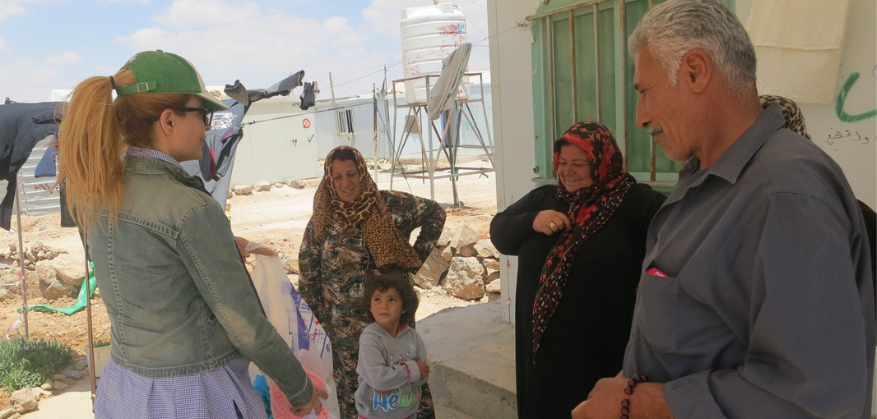
 Led by
Led by  Led by
Led by  Led by
Led by  Led by
Led by  The
The  Led by
Led by  Led by
Led by  Led by
Led by  The
The 